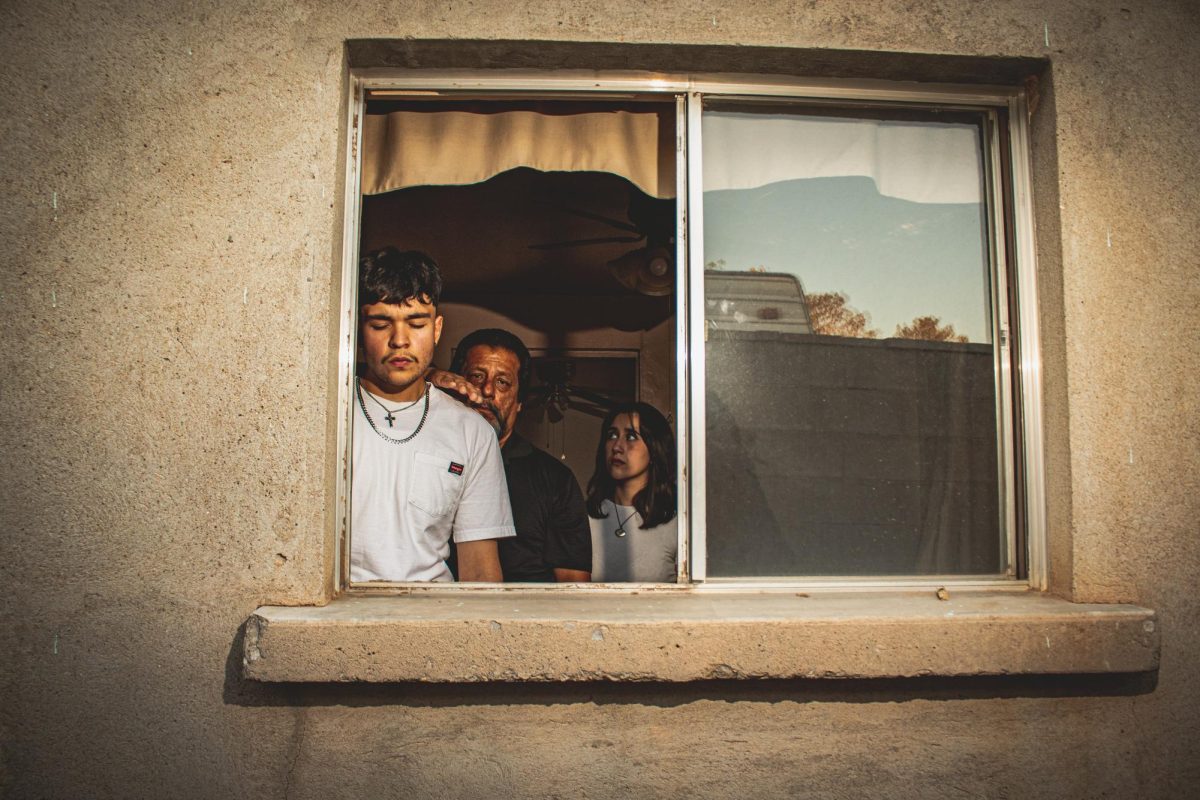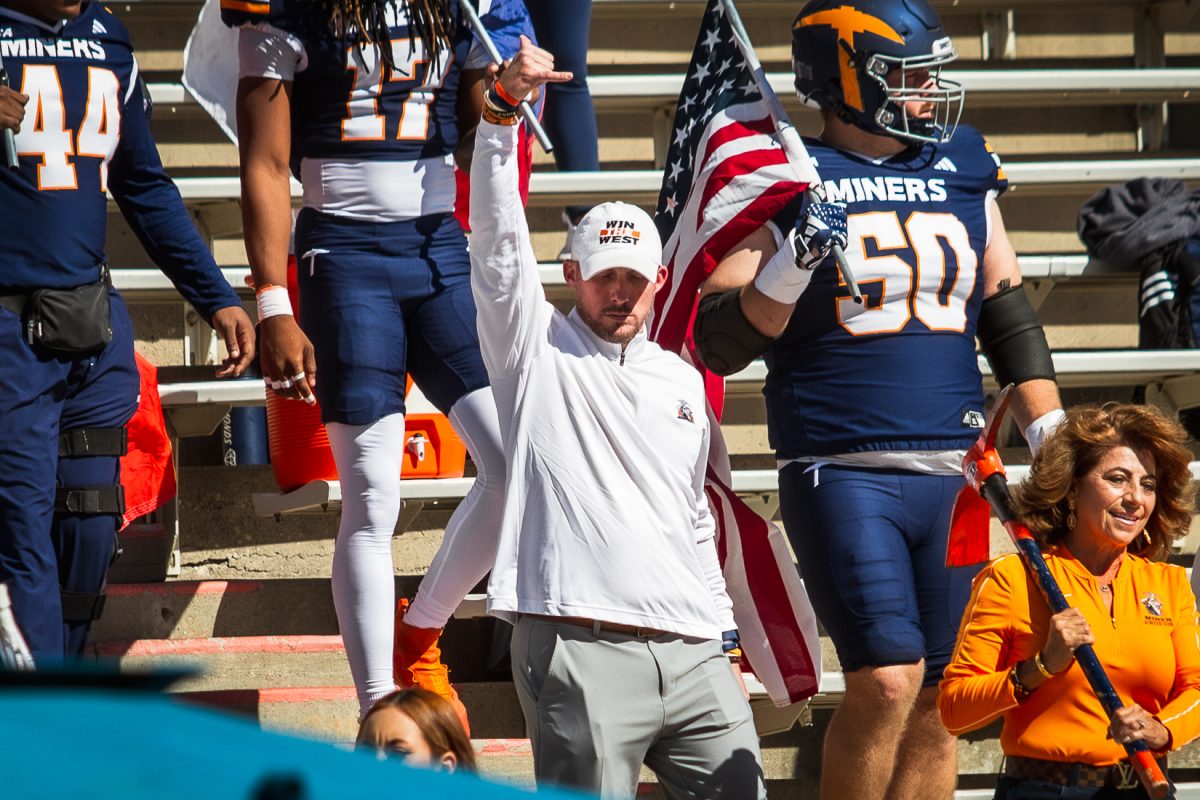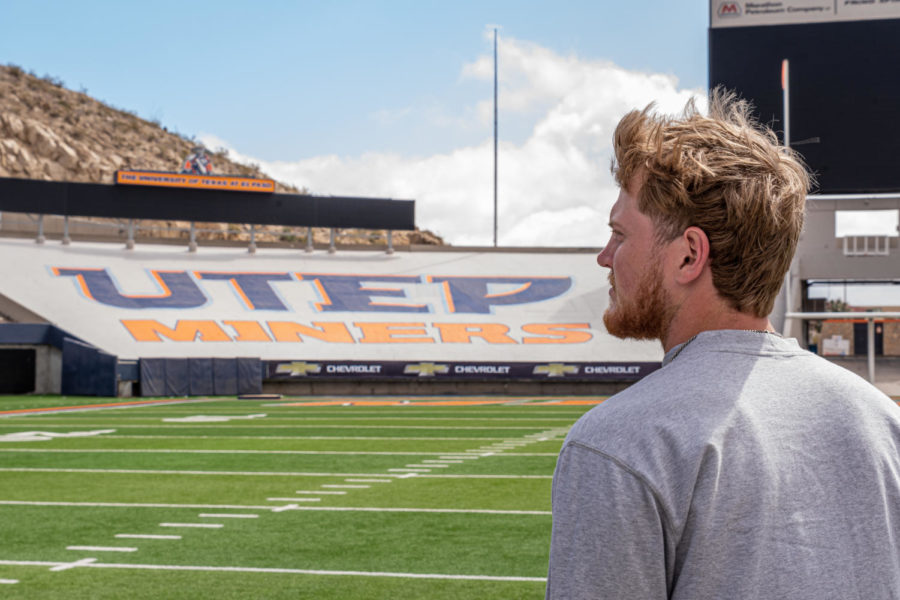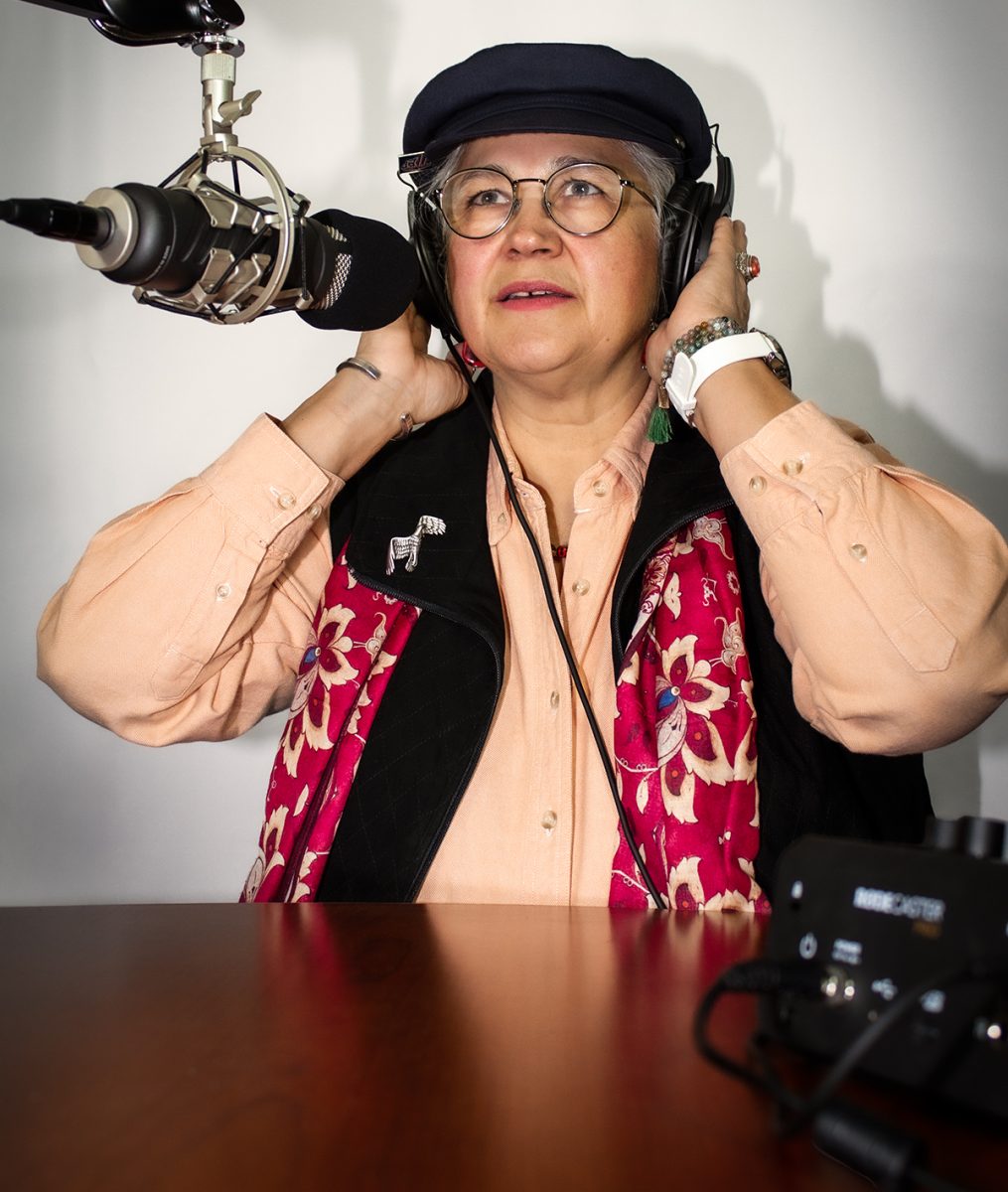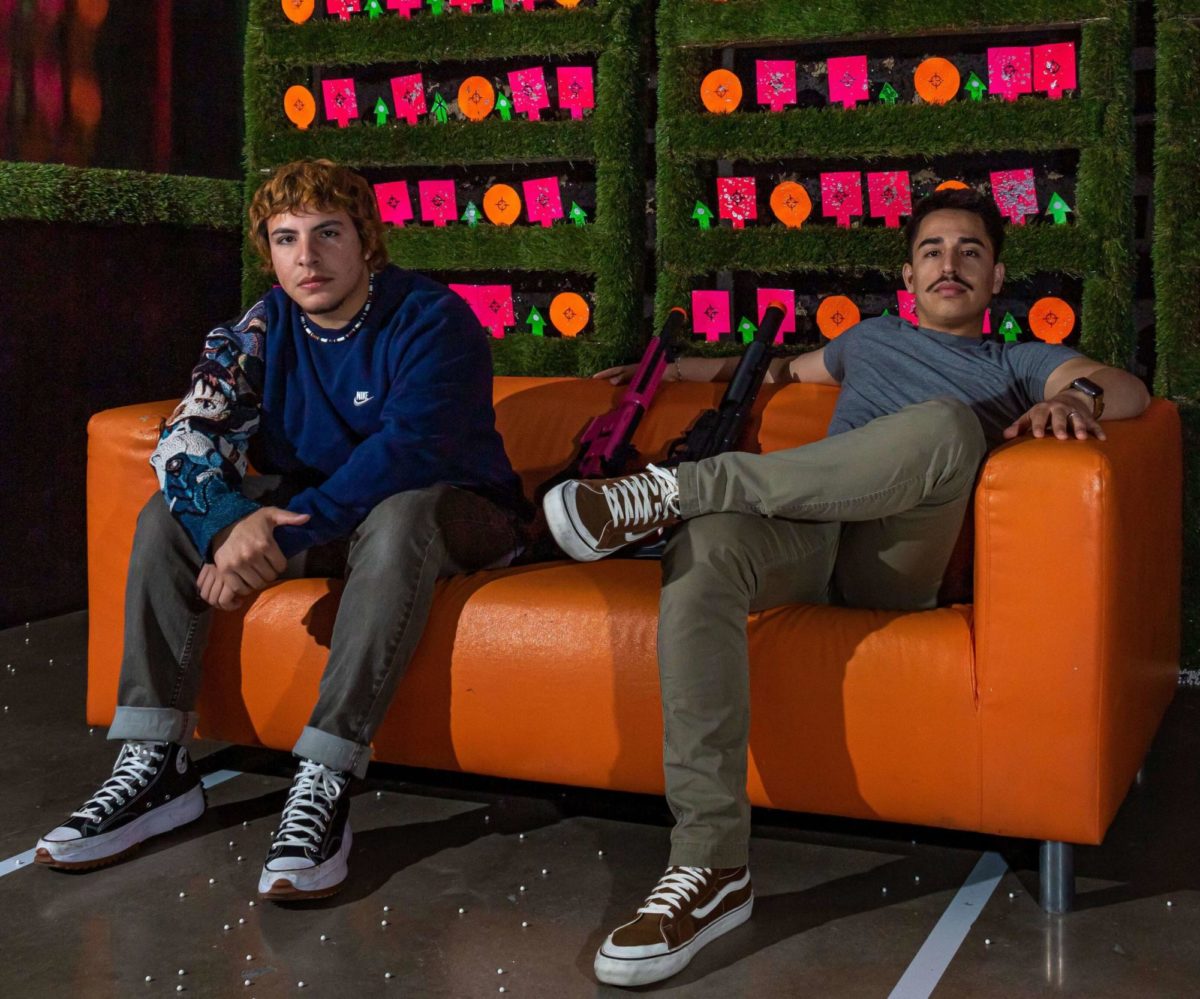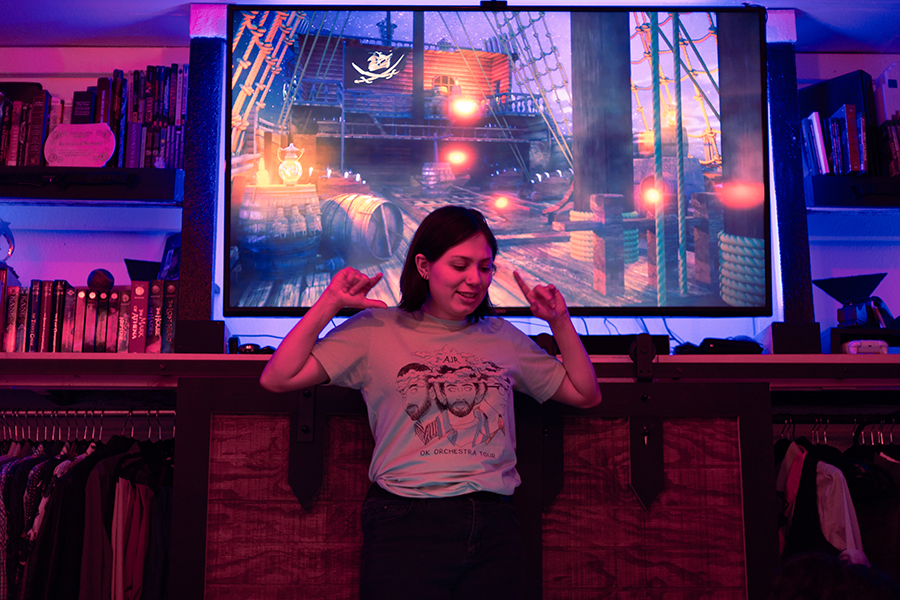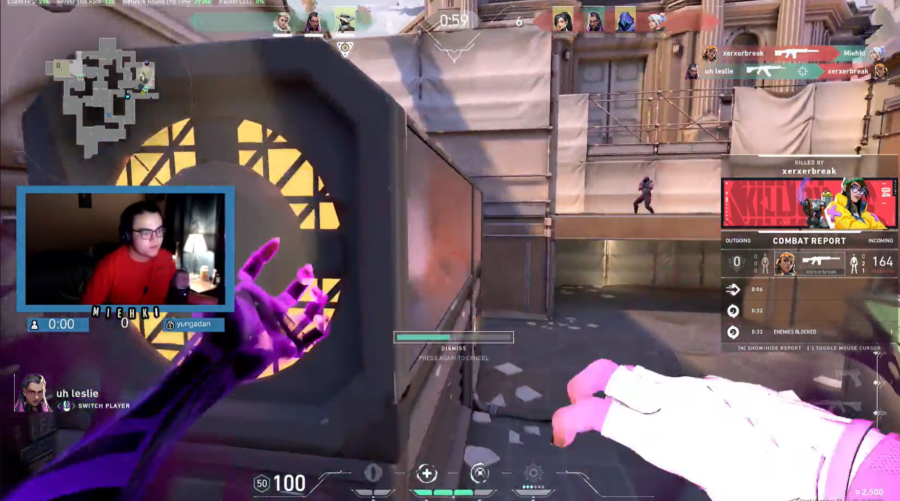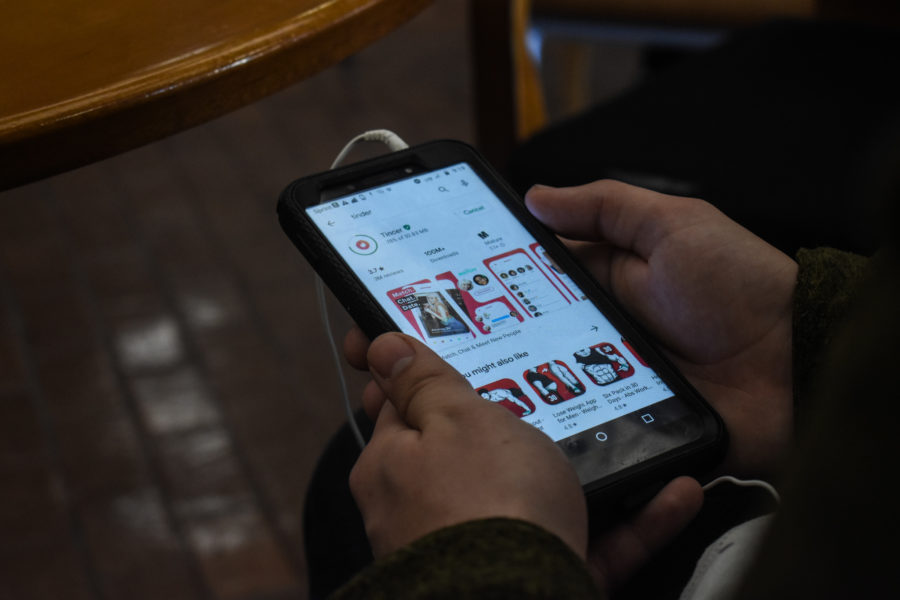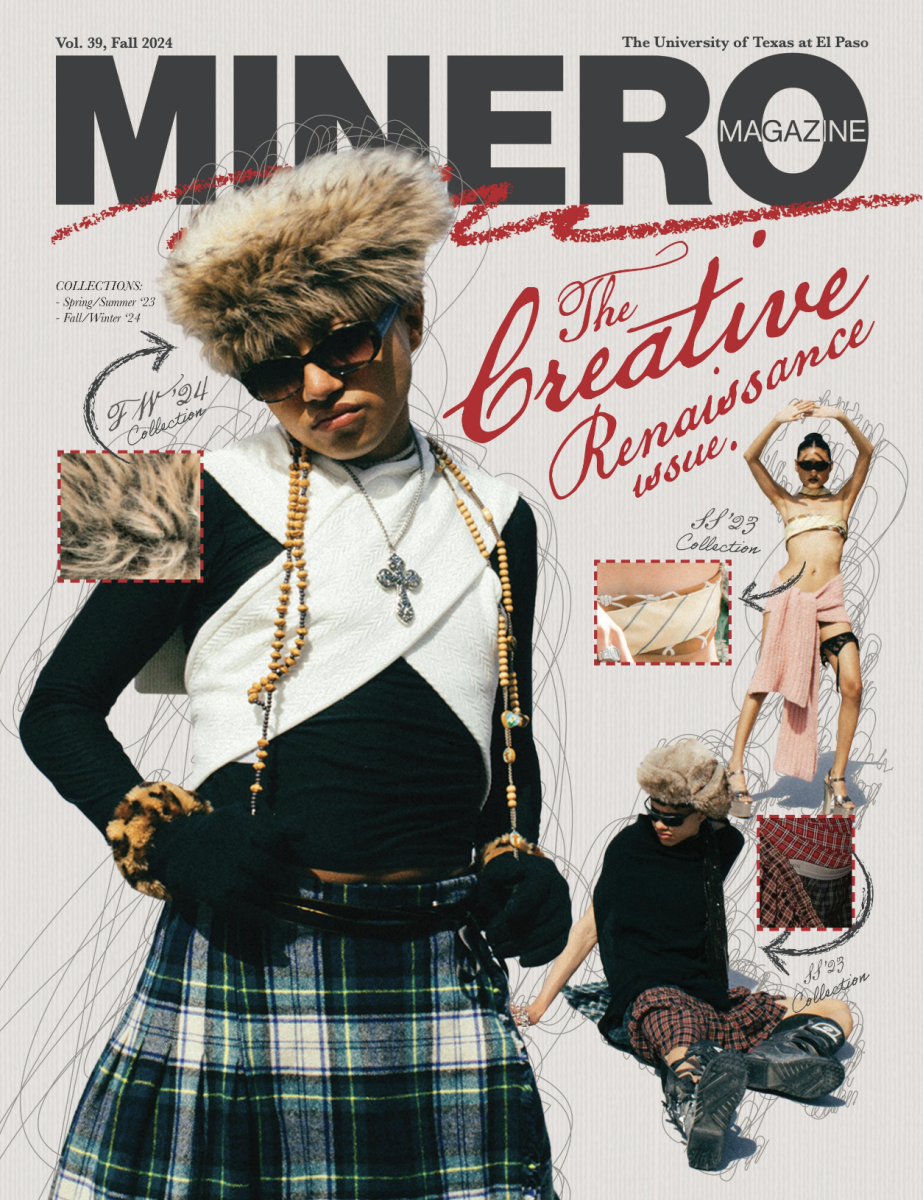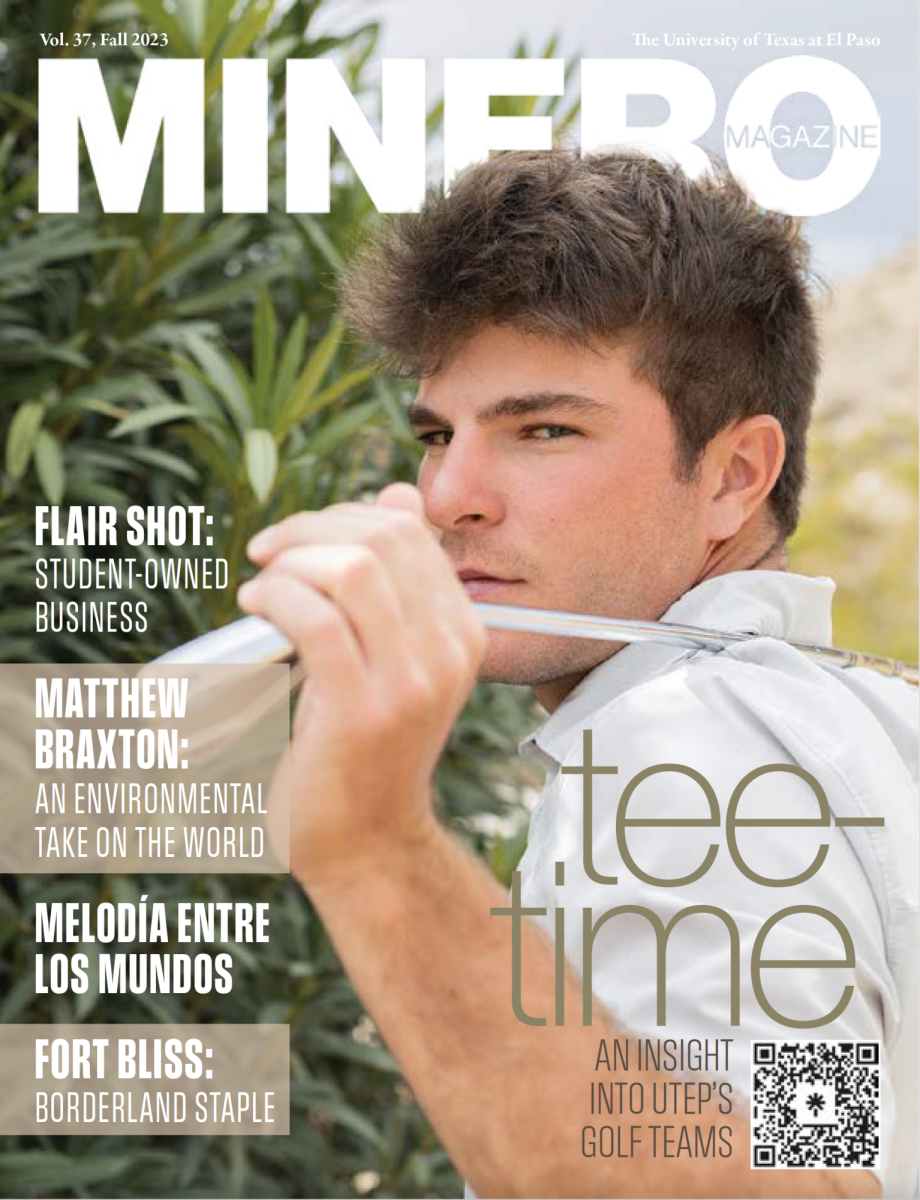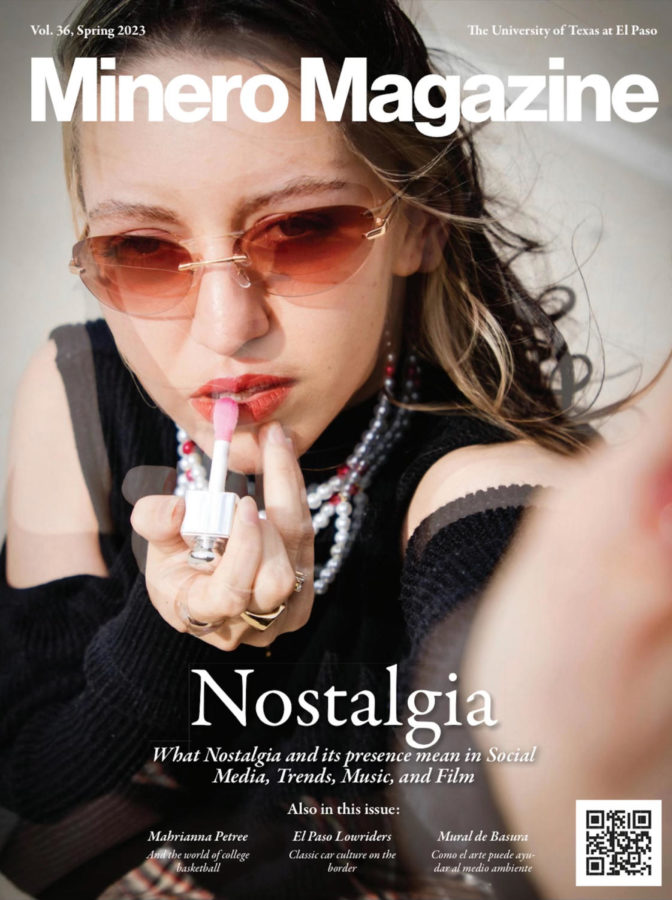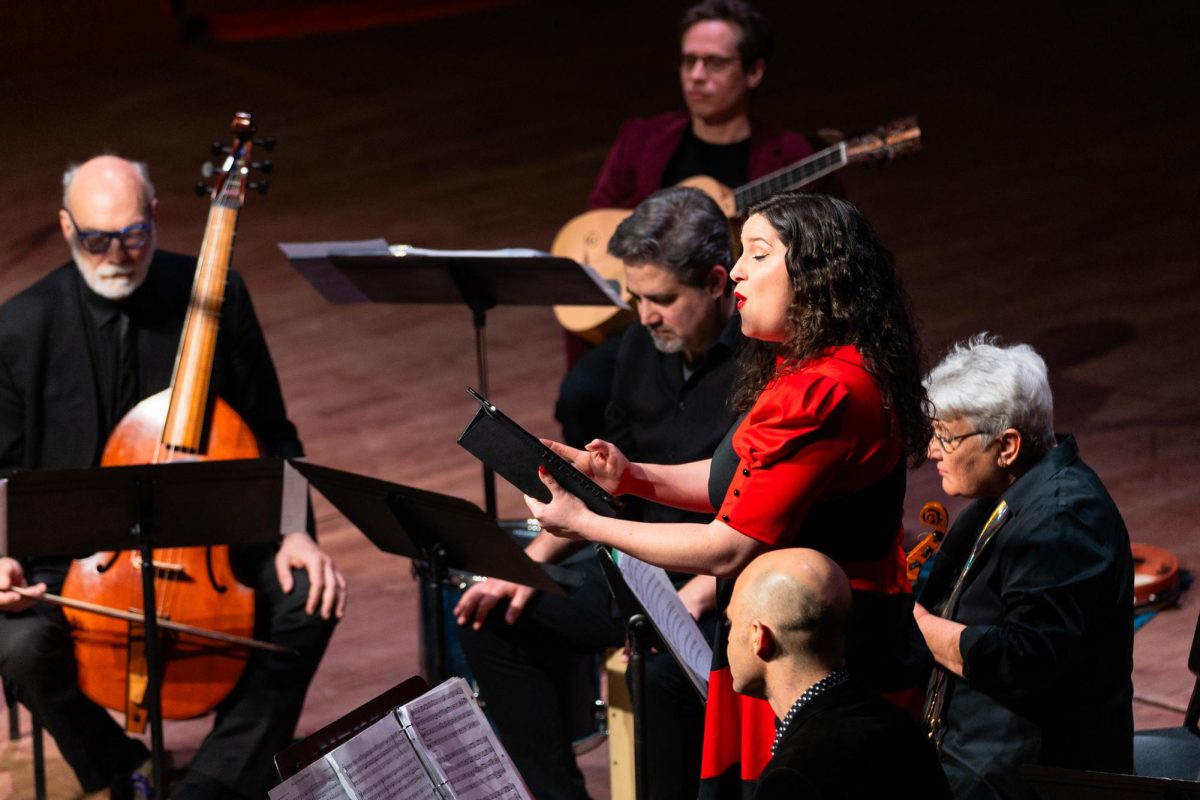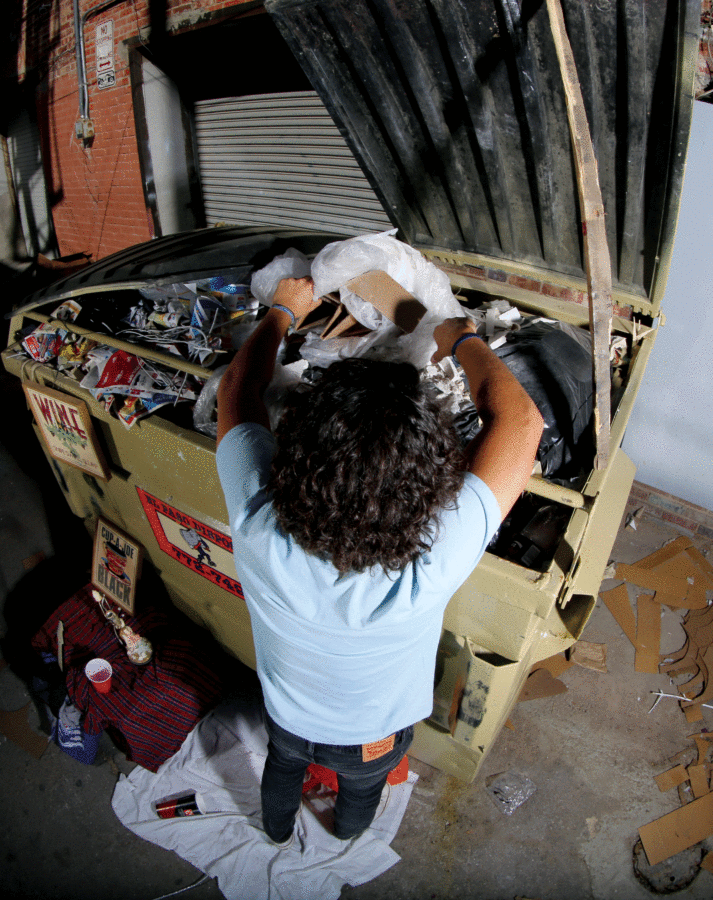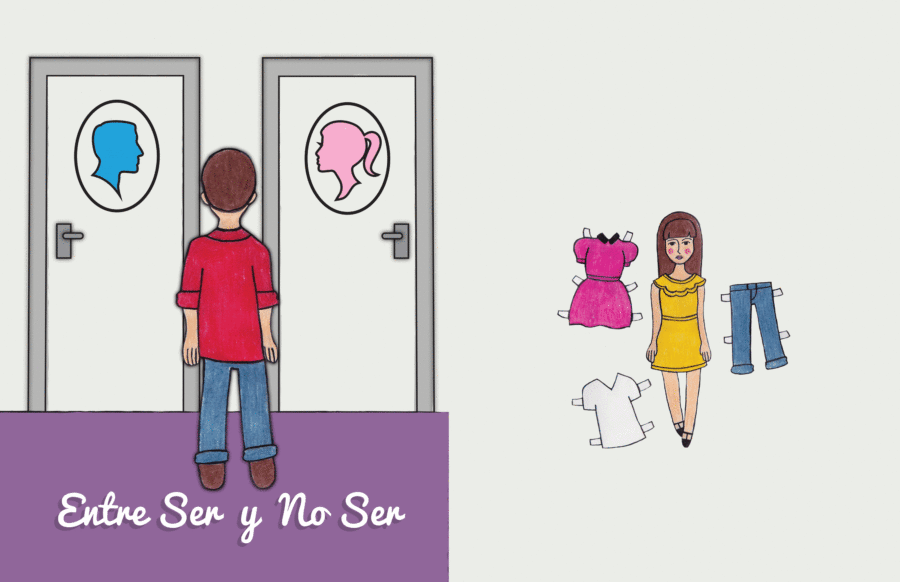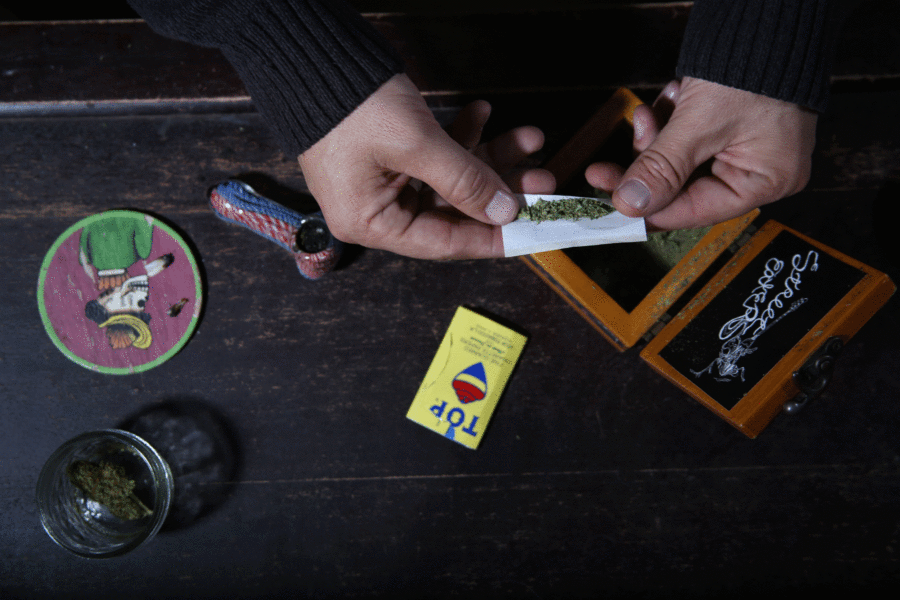
Story: Amanda Guillen
Design: Damian Balderrama
Photography: Justin Rodriguez
Gently tapping his foot on the floor, hands crossed and eyes focused, 61-year-old Oscar Navarro is ready to give his testimony about his personal adventure with AIDS.
Many may not opt to use the word adventure to describe life with AIDS, but Navarro, who has had the disease for five years, is quick to tell anybody willing to lend a listening ear that it took him two minutes after doctors diagnosed him to get over it. “I got over it quickly because I knew there was nothing that I could do about it,” Navarro says. “People who are ashamed or sad about having AIDS will go into a depression and I decided that it wasn’t going to happen to me.”
Human Immunodeficiency Virus (HIV) is the virus that leads to Acquired Immunodeficiency Syndrome (AIDS) if left untreated. HIV affects the human body’s immune system, which is the natural defense system that all humans have. It helps defend the body against infection and disease.
The virus attacks the body’s T-Cells and CD4 cells, using them to multiply and, in turn, destroying them. Without T-Cells or CD4 cells, the body is unable to fight off infections or diseases.
According to AIDS.gov, more than 1.1 million people in the United States are living with AIDS and one in six are unaware that they have the virus. In El Paso, the number of persons living with AIDS is 1,933; 1,685 are male and 248 are female, according to the Texas Department of State Health
Services in 2013.
Navarro is among the 1,685 men in the community living with AIDS. He is a heterosexual male, who contracted the virus from a female in the sex industry. “I went to Mexico and I fooled around with prostitutes and that’s how I contracted it, but back in our day our parents never talked to us about HIV,” Navarro says. “Well actually we didn’t even know about HIV or AIDS so how could we have known. And there were parents that didn’t even like to talk about sex, period.”
Although Navarro found out he was living with AIDS in 2009, he said that the lack of education from when he was younger is what led to his unsafe habits as an adult. “I have had people tell me, well why didn’t you use condoms?” Navarro says. “Well back in the day, they didn’t have them out like when you go to Walgreens now and you see them out, they would have them behind the counters of the stores. I would see them, but I didn’t know what they were.”
This lack of education and neglect of the importance of sex education is what Navarro says he wants to change with future generations. “That is my biggest challenge–is going to speak to kids about it, because I feel like they need to learn,” he says.”There are some people out there that don’t think that they should know, they feel that it should be hidden, but I don’t. I feel that if I have the infection, you need to learn to deal with it.”
Although he speaks about his situation without hesitation now, Navarro says that it took him a while to feel comfortable telling his friends.
When Navarro found out he had AIDS, he wasn’t the first in his family to know. His sister was the one who noticed he was getting sicker by the day. It was not until Feb. 14, 2009 that Navarro said things took a turn for the worst. “I ended up with pneumonia, then I started getting sicker and sicker, and then my sister for some reason went to check up on me and she saw that I was getting real sick,” Navarro says. “She tried taking me to the hospital, but the farthest we got was to the fire station. We got the paramedics to take me to the hospital. When we got there, the doctor ran some tests and when he saw the tests, he wasn’t satisfied, so he did another test and did some blood work, and then it came out that I had full-blown AIDS.”
Navarro’s sister was notified by the doctor and was briefed on how to tell him, due to his mental condition. His doctor felt that he would react negatively to the news. “When it came time to tell me, they had to find a way to do it because I am what they call mentally challenged and they didn’t know how to tell me. They tried to get a psychiatrist to do it and the poor guy didn’t know how to do it, so I turned to my sister and told her ‘I have something, don’t I?’ and that’s when she told me,” he says. “I was sad, to be honest, for about two minutes. I got over it, because like I tell my niece, if I can live with epilepsy, then I can live with this and that’s what I do.”
MOVING FORWARD
Navarro’s life with epilepsy and AIDS, he says, is just another opportunity for him to educate and help others. He says that because of his situation, he is able to live a life where he talks to others in hopes of preventing other cases of HIV/AIDS. Navarro now volunteers his time at International Aids Empowerment (IAE) and is an active voice for the nonprofit organization, which was established in 1997.
IAE’s mission is to improve the quality of life for people living with HIV/AIDS regionally, nationally and internationally. Through education, outreach and testing, IAE also strives to reduce the number of infections and the spread of HIV/AIDS. “I attend IAE, first of all, because I am a client and second because in my own heart I feel like I like to give a little back because of the appreciation of what they do for me. I help out in the pantry and I am a pre-educator,”
Navarro says. “We go to different schools and we talk to kids about HIV and protection and I enjoy coming here. I am here Mondays through Fridays, many people ask me ‘why don’t you take a day off?’ and I tell them as long as I get Saturday and Sunday, I’m alright. I will take a day during the week if I need it, but other than that I am here every day.”
Ivan Rodriguez is the financial director for IAE and he says that the services that this organization provides helps clients get back on their feet and, in cases like Navarro’s, helps them live a life where AIDS is not a problem, but rather just “a bump in the road.”
Rodriguez says that he believes the major roadblocks that communities, especially communities such as El Paso, face are the continued stigmas that are associated with the disease. “Many people think that these people are deviants and perverts–that is why they get HIV,” Rodriguez says. “Unfortunately, we live in a society that thinks HIV is only a disease that gay people have, and they think, ‘oh it’s the gays that have it. Why should we be paying for their deviant behavior or their immoral behavior?’ So we are doing our best to change that perspective, and I think that has been a challenge because people are still with that mentality.”
Rodriguez says the efforts to assist those living with AIDS have nothing to do with morality.
“This is about helping people who are infected with the disease and learning how to stop it, and so what we are trying to do is explain that a lot of our clients are heterosexuals, a lot more than you think. Many times, ladies come in here, moms and ladies that are very conservative,” Rodriguez says.
Navarro, like Rodriguez, disagrees with the stigmas and wants people to know that anyone can contract AIDS. “I knew that it is not true, because I went with prostitutes in Juárez,” Navarro says. “So how can it just be the gays if I ended up with them and I got it? And there are still people that think that only gay men or lesbians get AIDS, but that is not true–anybody can get it.” He says that people need to know that sex isn’t the only way AIDS can be passed on–popular trends such as tattoos and piercings may also lead to contracting the virus if an infected needle is used.
HIV/AIDS education and knowledge have come a long way from when it first became known to the American public and started a firestorm of controversy in the 1980s.
With the mindset being that HIV/AIDS is strictly a gay virus, some organizations and projects are helping to erase that misconception little by little through education and activism. The Names Project, M-Factor, International AIDS Empowerment and Outright are some examples of projects and organizations in El Paso that are helping spread awareness in the community about HIV/AIDS.
THE BATTLE CONTINUES
David Peralta-Torres, a graduate student in public health and an HIV education and prevention specialist, is a co-coordinator for the El Paso chapter of M-Factor. Peralta-Torres says that the stigma of HIV/AIDS will not end any time soon.
“We have a long way to go before that happens. One thing that comes to mind when you ask me that is in the early days of HIV/AIDS, there was a lot of stigma coming from outside of the gay community. So HIV was seen as a gay disease, a drug addicts’ disease and it was our community trying to fight that stigma coming from outside,” Peralta-Torres says. “Now that there is effective treatment and HIV is no longer a plague that it used to be. We are seeing stigma from inside the community. So it is sort of like slut-shaming, whereas you are a gay man and you have HIV, you brought it upon yourself and it’s because you were out there, and things like that, but on the same token those that protect themselves and take an active stance are also stigmatized. So if you want to use condoms and are very active about that and you’re always getting tested, then it shows that you care about your health. Then people begin to say, ‘oh you think you’re too good,’ so there is a lot of stigma and we still have a long ways to go.”
Like Navarro, Peralta-Torres believes in the power of HIV education in order to help younger generations understand the consequences of unsafe sex practices. “This is a very underground topic, it is very taboo. One of the things that we do is online outreach–so we go on the websites and the apps that are used for hookups, and in many instances when we talk about HIV it is the first time they have ever heard it or the first time they have ever been asked about that,” he says. “So it is one of those things that we find, that the community is still kind of oblivious about it, especially the younger generation that didn’t grow up in the ’80s and ’90s. They are just very oblivious and they don’t see it as a big deal, and they don’t really understand the risks of HIV transmission and they also don’t understand the social and mental effects of it.”
Nationally and in El Paso, college-aged students are more prone to contracting HIV and AIDS. In El Paso, the 13 to 24-year-old age group saw 27 diagnoses’ in 2013, the second-highest diagnosed age group. The highest diagnosed group was 25-34, which had 41 cases in 2013.
“I wish college students were more active with their health, and I know that at that age it is a time to be free and it is a time where you feel invincible and you can do whatever you want, and for the most part you can, but what you do during this time will affect you for the rest of your life,” Peralta-Torres says. “Take a more active role in your health because it will follow you.”
With over 25 medications approved by the FDA to treat HIV infection, the fight against AIDS is better equipped. Navarro says that soon, people will be able to live normal lives and maybe even be cured indefinitely from the infection. Until then, he says he will continue on with his fight to inform anyone willing to listen and help out at the non-profit every day.
“I feel inside my heart the need to not to be ashamed because I have HIV and AIDS because it is a sickness that I got and I know how I got it and there is nothing to be ashamed about,” Navarro says.
En Breve
Mucha gente no optaría por describir teniendo SIDA como una aventura, pero así es como lo hace Oscar Navarro de 61 años. El ha tenido la enfermedad por cinco aÑos y se lo dice a cualquier que presta oído. “Yo supere la noticia después de dos minutos porque estaba consiente que yo no podria hacer ya nada”, dice Navarro.
El virus de la inmunodeficiencia humana (VIH) es un virus que puede avanzare a síndrome de inmunodeficiencia adquirida (SIDA) si se deja sin tratar. El VIH ataca al sistema inmune que ayuda a defender al cuerpo contra infecciones y enfermedades.
De acuerdo con el Departamento de Servicios de Salud en Texas, en el 2013, se registraban 1,933 personas viviendo con SIDA en El Paso. 1,685 son hombres y 248 son mujeres.
“Yo viajé a Mexico y tuve relaciones con una prostituta y así es como contrate la enfermedad”, dice Navarro, que es heterosexual. “En mis tiempos, no se hablada sobre el VIH/SIDA. Los padres no hablaban con sus hijos sobre el sexo”.
La falta de educación y negligencia sobre la importancia de la educación sexual es lo que espera cambiar Navarro junto con su trabajo social con International AIDS Empowerment, que ayuda a mejorar las vidas de gente viviendo con VIH/SIDA. El director de finanzas, Ivan Rodriguez, dice que el más grande contratiempo que se enfrenta la comunidad son las estigmas que se asocian con la enfermedad, entre ellas que es solo contratada por hombres homosexuales.
“Esto se trata del ayuda que les damos a la gente infectada con la enfermedad y aprendiendo a como darle alto. Igual y tambien estamos tratando de explicar que muchos de nuestros clientes son heterosexuales, mucho más de lo que la gente piensa”, dice Rodriguez.
Proyectos y organizaciones como The Names Project, M-Factor, International AIDS Empowernment y Outright son algunos ejemplos de estabilizaciones que están expandiendo el entendimiento entre la comunidad sobre el VIH/SIDA.
David Peralta-Torres, estudiante de salud pÚblica y especialista y educador de la enfermedad, es coordinador de M-Factor. El dice que los estigmas no se terminaron pronto. “Tenemos un largo camino que recorrer antes de que eso pase”, dice Peralta-Torres. “Mucha de la comunidad aun no entienden los riesgos de la transmisión del VIH, especialmente estudiantes de colegio”.
Nacionalmente y en El Paso, estudiantes del colegio se riesgan más a contratar el virus. Entre las edades de 13 a 24 años, se vieron 27 diagnósticos.
Con más de 25 medicamentos aprobados por el FDA para tratar la infección, hoy en día, existen más herramientas para combatir el SIDA.








